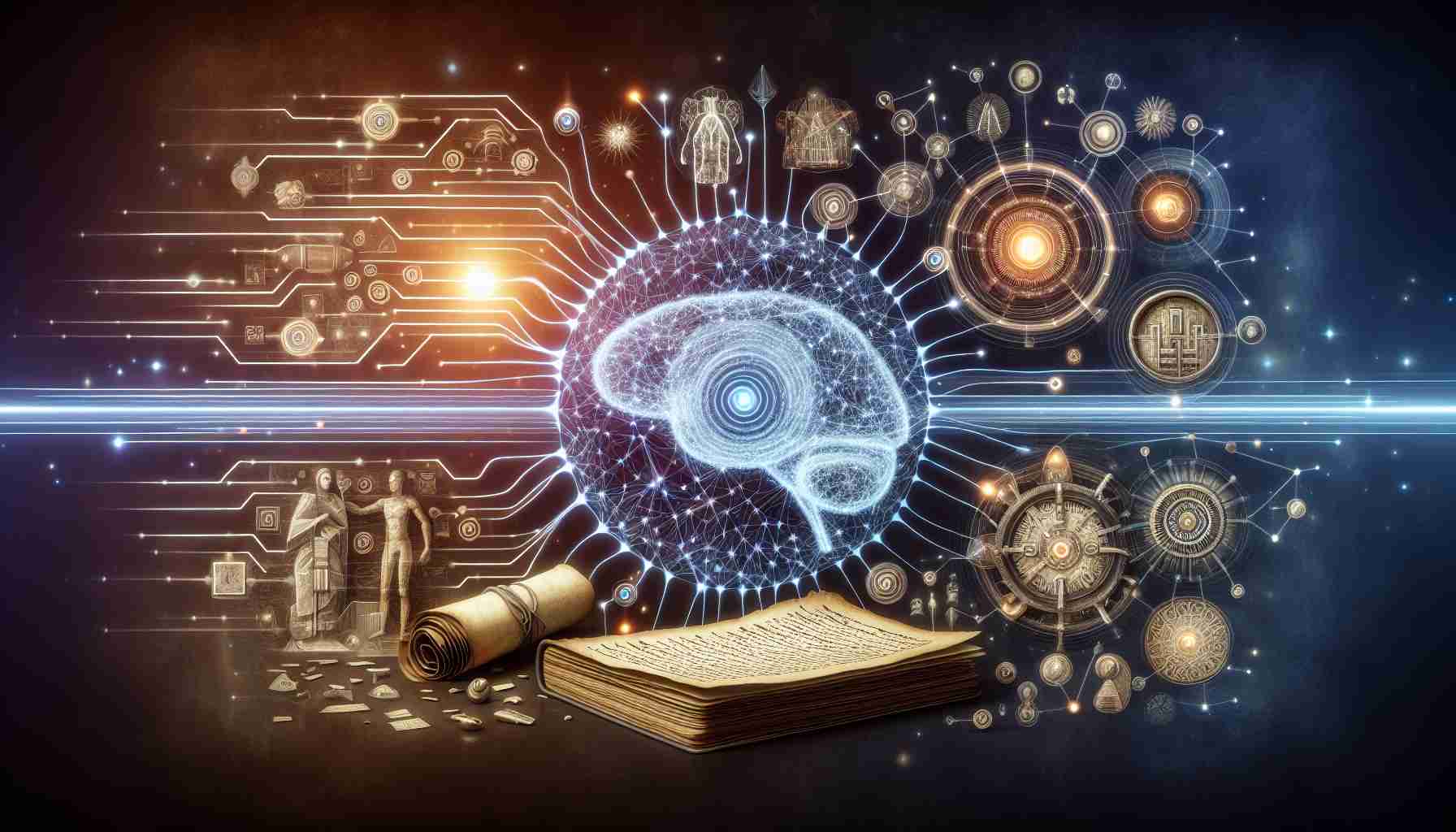The intersection of artificial intelligence (AI) and archival records holds great promise for enriching our understanding of history, politics, and the evolution of societies. This sentiment emerged from a meeting of experts from diverse fields at an event organized by the Konstantinos Karamanlis Foundation in Athens, Greece, held at the Karatza Mansion of the National Bank of Greece.
At this event, Konstantinos Daskalakis, a professor at MIT’s Department of Electrical Engineering and Computer Science, and the head of Greece’s National Commission for Artificial Intelligence, highlighted that AI technology offers a simplified and swifter way to access archival materials from the past. With the application of these tools, studying history could become a more adaptive process, tailored to the interests of students, suggesting an engaging, customized approach to learning that differs vastly from traditional methods.
However, the distinguished Greek scientist cautioned that while AI tools are remarkable, they are not infallible. They can inherit biases embedded in the data used to train them, underscoring the complex interplay between archival content and AI. To create AI tools that uphold certain values, it is imperative to develop archives that accurately reflect those values. He reminded us that humans bring meaning into play, while AI merely replicates information and serves as a tool.
In the same vein, Anna Diamantopoulou, former EU Commissioner and current President of the Network for Reform in Greece and Europe, pointed out the importance of integrating digital skills with humanistic studies to achieve their full potential. Meanwhile, Lilian Mitrou, a professor at the University of the Aegean and president of the Institute for Privacy and Personal Data, discussed AI’s far-reaching implications for privacy, as the technology demands and generates vast amounts of information, raising new risks for individual rights.
Adding to the discourse, Timos Sellis, the research director at the “Archimedes” unit of Athena Research Center, emphasized that AI is not an adversary in any domain. It is a product of human ingenuity, crucial for enhancing our capabilities in managing archives and processing knowledge. AI algorithms can aid archiving professionals by offering non-linear navigation through databases—like creating knowledge graphs—and enriching records with metadata, revolutionizing the access and interpretation of historical data.
The adoption of Artificial Intelligence (AI) in historical research and understanding is continuing to grow, as it allows researchers to uncover insights from vast amounts of data that would take humans much longer to process. AI can analyze large datasets, recognize patterns, and even translate ancient texts, offering historians and scholars the chance to gain a deeper understanding of historical contexts, relations, and events.
Current Market Trends:
AI technology is becoming increasingly prevalent in the field of digital humanities. There is a clear trend in the use of Machine Learning (ML) and Natural Language Processing (NLP) to analyze historical texts and archival data. These technologies can help detect sentiment, categorize documents, and provide insights into socio-political contexts of different eras.
Aside from academic research, there is an interest in using AI for public history projects, such as virtual reality experiences that recreate historical events or environments, and interactive chatbots that can act as guides through historical content.
Forecasts:
The trajectory of AI in historical understanding suggests it will become further integrated with historiographical methods. As more archives digitize their collections and as AI technology advances, the use of these tools is expected to become standard practice in historical research. According to market analysts, the intersection of AI with cultural and historical domains is likely to witness significant growth, encouraging technological investment in education and research industries.
Challenges and Controversies:
One of the primary challenges in using AI for historical analysis is the potential for algorithmic biases. Historical data can contain biases, and if AI systems are not carefully trained, they may perpetuate these biases, leading to skewed interpretations of history.
Another concern is the issue of privacy and ethical use of data, especially as AI tools are capable of collecting and analyzing personal information. The trade-off between the benefits of deep historical analysis and the risks to privacy rights is an ongoing debate.
Furthermore, there is the fear that AI could lead to a loss of traditional historiographical skills as reliance on technology grows, potentially weakening critical thinking and interpretative abilities among scholars.
Advantages:
– AI can process and analyze large volumes of historical data quickly and efficiently.
– It enables new forms of historical research, including predictive modeling and trend analysis.
– AI can provide personalized educational experiences, adapting to different learning styles and interests.
Disadvantages:
– There is a risk of AI perpetuating historical biases.
– It may lead to overreliance on technology among researchers and impact traditional research skills.
– The costs of implementing advanced AI solutions can be prohibitive for some institutions.
For more information and potential links to organizations or institutions relevant to AI and historical research, one might consider visiting notable domains such as:
– Massachusetts Institute of Technology’s AI initiative
– European Union website
– Athena Research Center
These domains provide a wealth of information and are key players in the integration of AI with historical and other academic disciplines.

